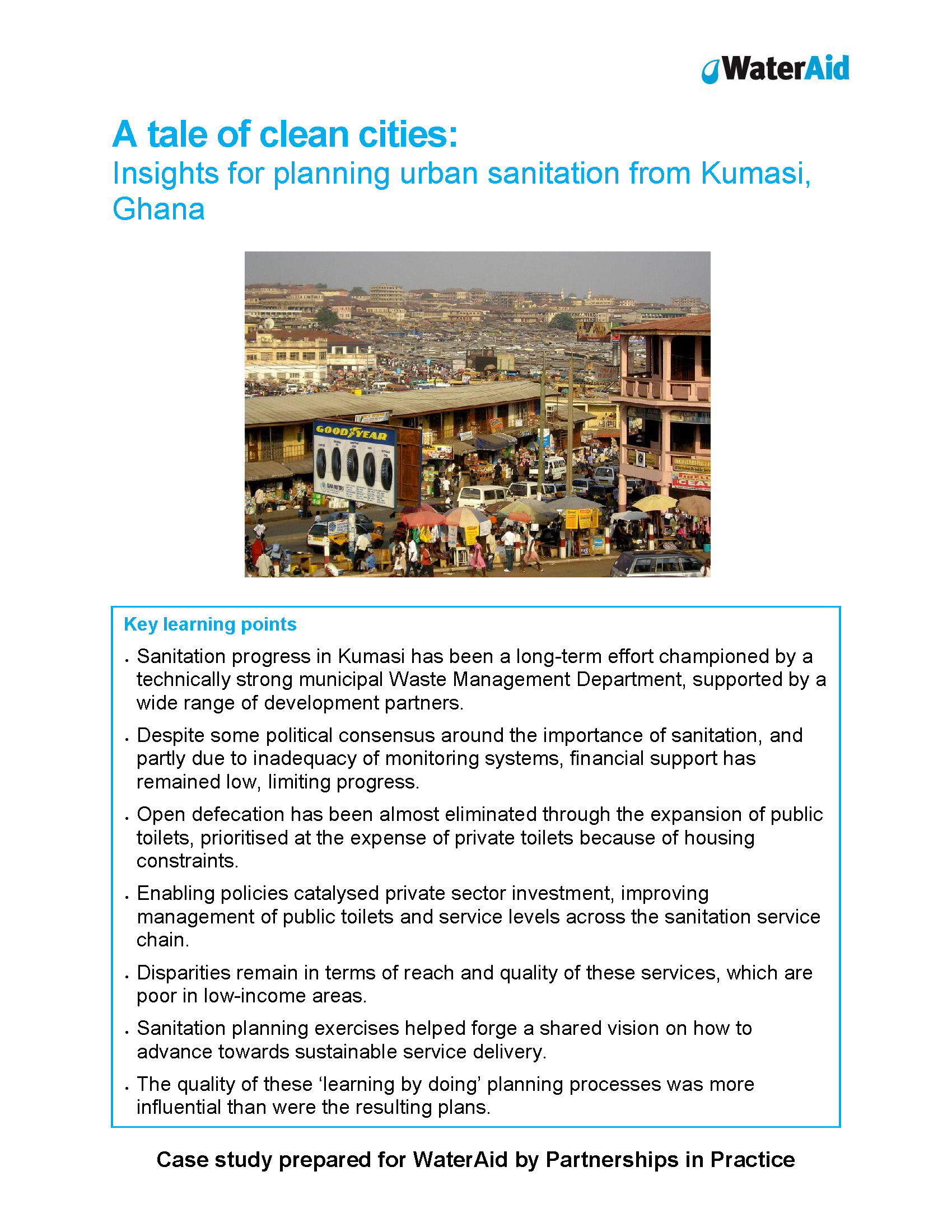 TITLE: A tale of clean cities: Insights for planning urban sanitation from Kumasi, Ghana
TITLE: A tale of clean cities: Insights for planning urban sanitation from Kumasi, Ghana
AUTHOR: Tiberghien J-E
YEAR: 2016
ABSTRACT: Part of a research project that examines the sanitation planning processes of three cities in developing countries that are making good progress in providing sanitation services to all. Kumasi has almost eradicated open defecation but access to improved household sanitation remains low because the local housing context has favoured the development of shared sanitation. About 40% of the population still rely on public toilets.
Building on a strategic sanitation plan developed in the early 1990s and support from development partners, the city made strides in implementing an integrated approach to urban waste management. Different segments of the sanitation service chain have been addressed and progress has been carried out on both liquid sanitation and solid waste management, albeit sometimes only carried out at pilot scale. Through a wide range of innovative initiatives, Kumasi has built a reputation as a sanitation pioneer in Ghana and the region.
A large proportion of the progress was achieved by successfully tapping into private sector potential, expanding the city's capacity to meet rising demand while gradually increasing levels of service. Strong internal capacities were critical in triggering and sustaining momentum around sanitation over more than two decades. In the face of chronic political, institutional and housing obstacles, which prevented progress on household sanitation.